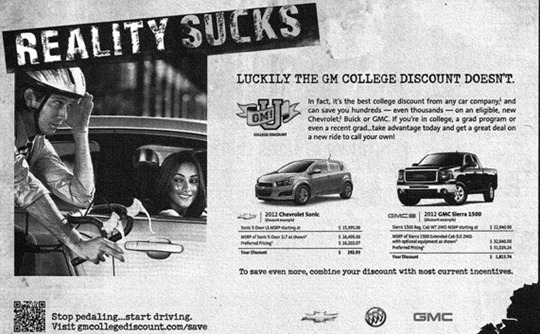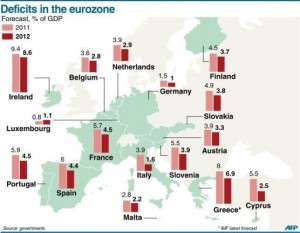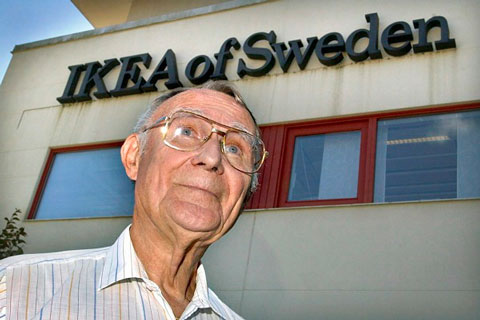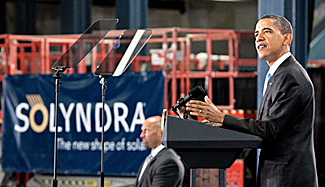 Responding to Nicola Lam’s blogpost (1) about the controversial GM advert, I do not concur with her concluding that GM should subsequently put their focus on sustainability as a reaction on their latest advertisement desaster.
Responding to Nicola Lam’s blogpost (1) about the controversial GM advert, I do not concur with her concluding that GM should subsequently put their focus on sustainability as a reaction on their latest advertisement desaster.
The reason for the extremely negative response (3) to this ad was its degrading nature, not the praisal of pollution. The target audience being college students, who often happen to ride a bike, it is understandable why they pose an attractive target to gain new customers. GM’s strategy to reach this goal, however, was far from diplomatic: If you ride a bike, women look down on you, you’re ashamed, “life sucks”. Many college students prefer a bike to a car because of health aspects or convenience because they already live on campus.
Given these points, the marketing method that was applied here becomes disastrous and could harm the company’s already damaged image even more. Before taking provocative advertisement such as this into account, a business should gain clarity about its target audience. College students often rely on bikes because of convenience rather than monetary reasons – GM should have considered if their slogans would still appeal given these conditions in order to advertise their cars to students.
Sources:
1) https://blogs.ubc.ca/nicolalam/2011/11/14/cycling-hot-or-not/ ; Nicola Lam, 14th of November 2011
2) http://abcnews.go.com/blogs/business/2011/10/gm-backpedals-on-anti-cycling-ad/ ; Kevin Dolak, 13th of October 2011
3) http://www.gelatobaby.com/2011/10/12/gm-backpedals-on-anti-bike-ad/ ; Alissa Walker, 12th of October 2011









